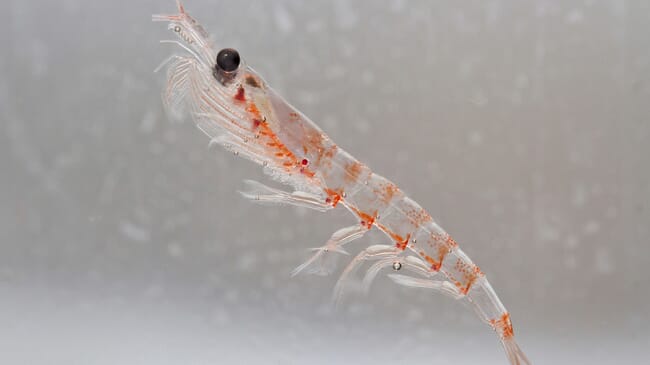
F3 - Future of Fish Feed, has selected 10 companies to compete in the F3 Krill Replacement Challenge, a contest designed to spark innovation for alternatives to krill in aquaculture feed. The companies’ products will compete in a head-to-head competition - against each other as well as against krill and fishmeal controls - in a 12-week feed trial on Atlantic salmon. The company with the krill replacement product that results in the best growth, feed consumption and survival will be awarded a $100,000 grand prize.
The finalists and products
The companies and their products are:
- US-based APC LLC (spray-dried plasma)
- Brazil-based BRF Ingredients (chicken hydrolysate)
- China-based Calysseo (single-cell protein)
- Finland-based eniferBio(fungus)
- Singapore-based Entobel (black soldier fly)
- Netherlands-based Orffa Additives (amino-acid extract)
- France-based Phileo by Lesaffre (yeast extract)
- Netherlands-based Protix (black soldier fly)
- India-based Shaivaa Algaetech (algae)
- Germany-based Symrise (protein hydrolysate)
“It wasn’t an easy decision to select these finalists out of the 40 great krill replacement products we received,” said F3 Judge Kevin Fitzsimmons, a professor of environmental science at the University of Arizona, in a press release.
The companies advancing to the trial phase of the contest, which is expected to begin in March 2024, were selected from a pool of 40 companies from across the world that registered for the F3 Krill Replacement Challenge, the fourth aquaculture feed contest hosted by the F3 - Future of Fish Feed initiative. Testing was performed to confirm all products being used in the trial are free of marine ingredients.
Five companies — US-based Agri-King Nutrition, LLC, France-based Arbiom, US-based Knipbio, Spain-based Lucta (in partnership with Unibio), and US-based NovoNutrients — were all selected as alternatives in the event a finalist’s product cannot be incorporated into the F3-designed feed being used in the trial.
The contest will be run as a comparative feeding trial in which each competitor’s feed additive will be incorporated into a F3-designed, plant-based feed for Atlantic salmon.
The rationale behind the competition
The krill replacement products have the potential to benefit many other farmed seafood producers seeking to enhance performance of “fish-free” feeds, since krill is not only used to enhance nutrition, but also for its attributes as an attractant and its taste.
The F3 Krill Replacement Challenge was motivated by feed companies, particularly from China, who suggested finding alternative attractants and tastes would greatly assist in the transition to “fish-free” feed.
The F3 Initiative was founded on the premise that there are not enough fish in the ocean to feed the growing world population and that new aquaculture feed ingredients are necessary to ensure a food secure future. The first three contests focused on eliminating wild-caught fish in feed.
Scientific research has shown sharp declines in krill populations by as much as 80 percent, which is the result of regional overfishing and climate-induced changes in ocean temperature, currents, and acidification.




